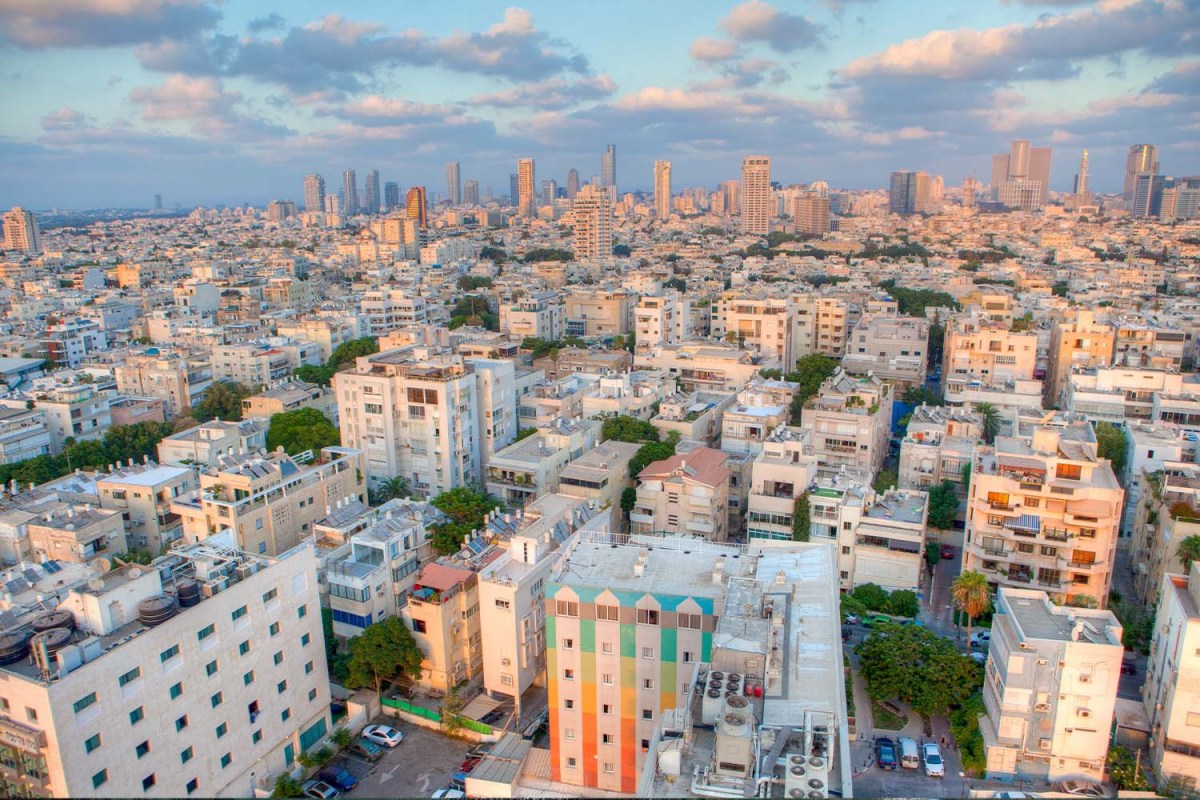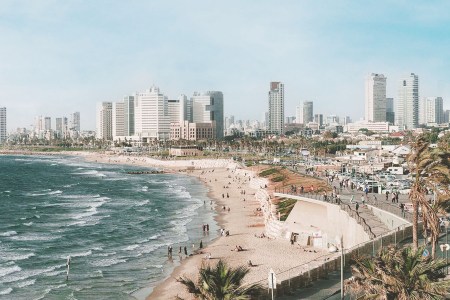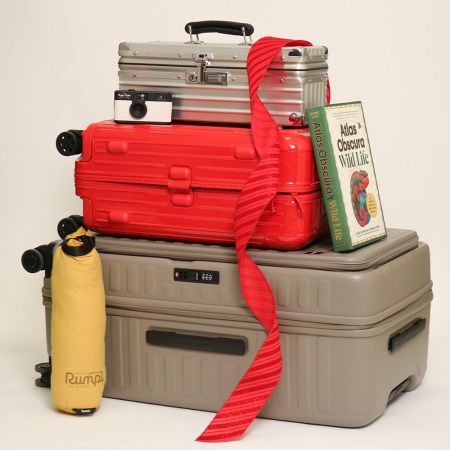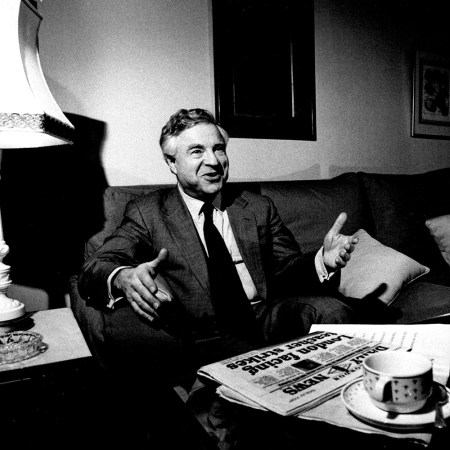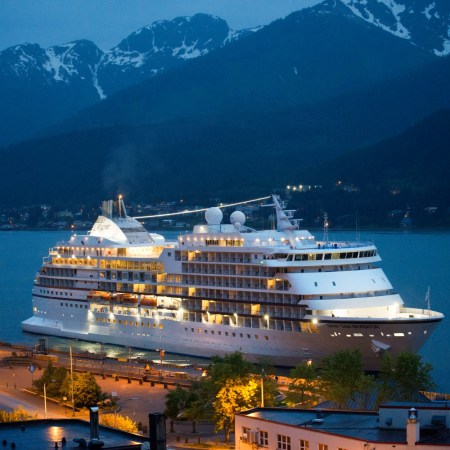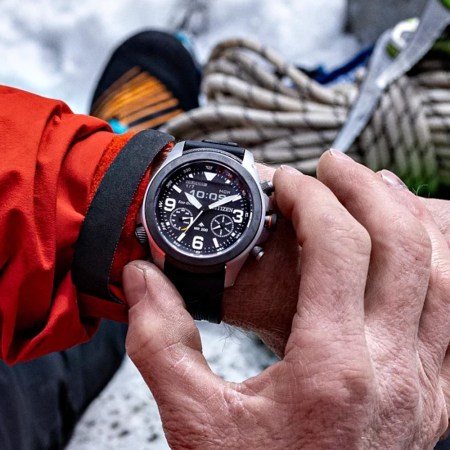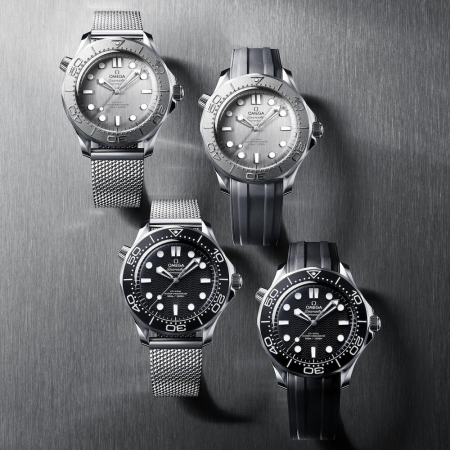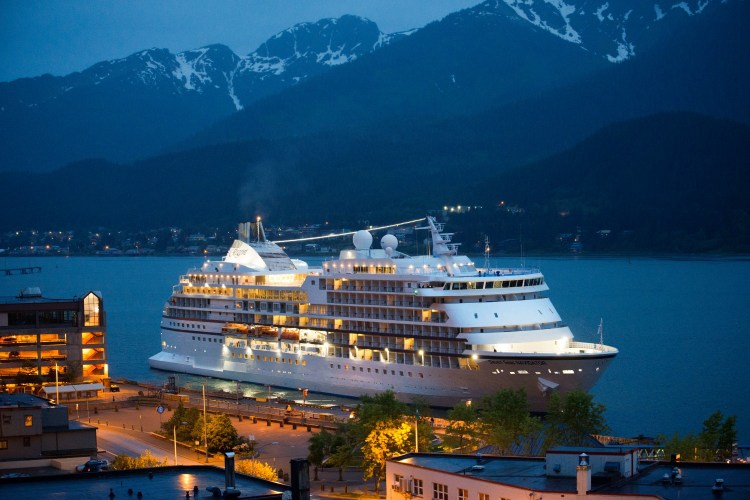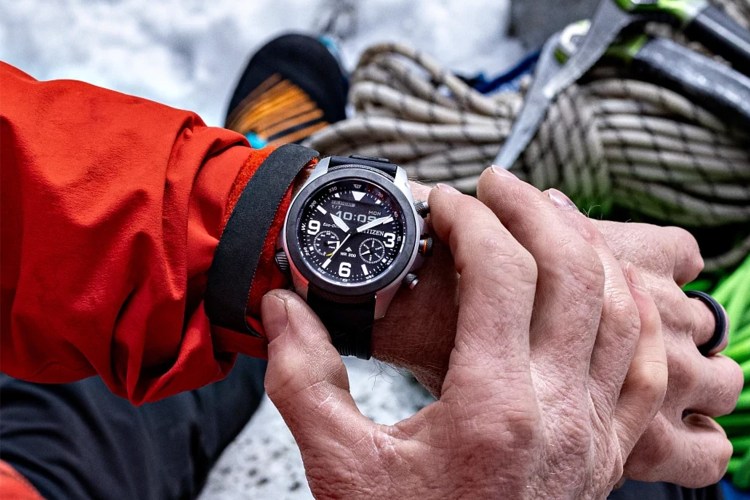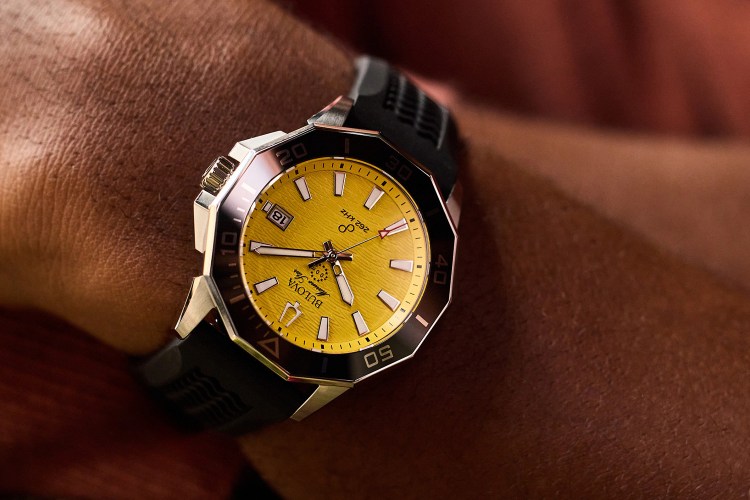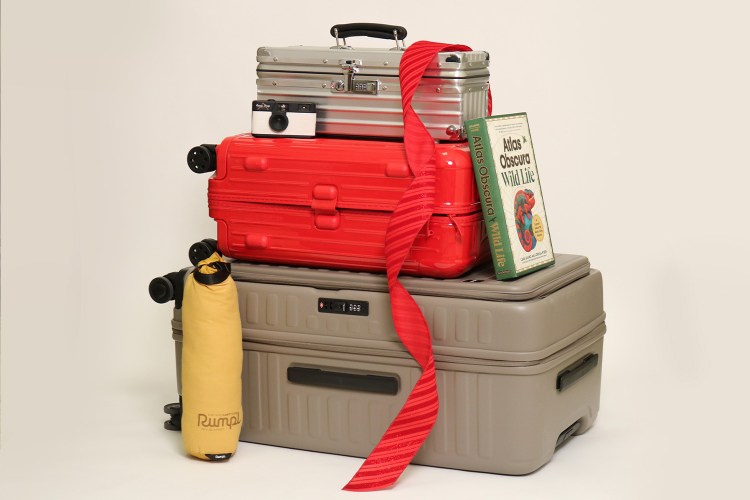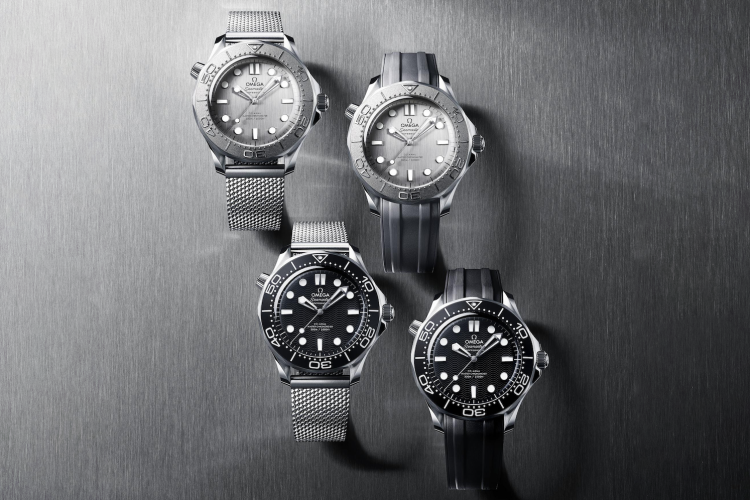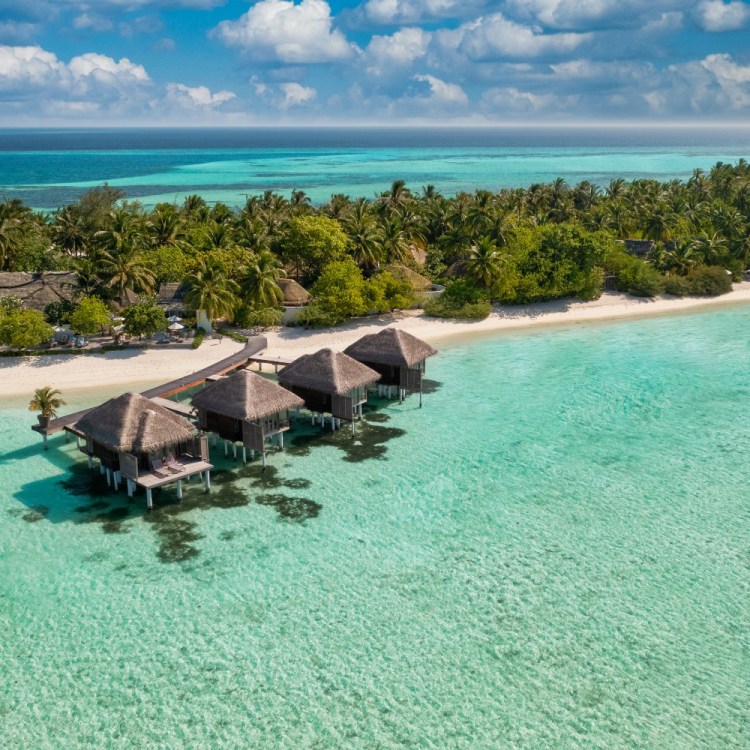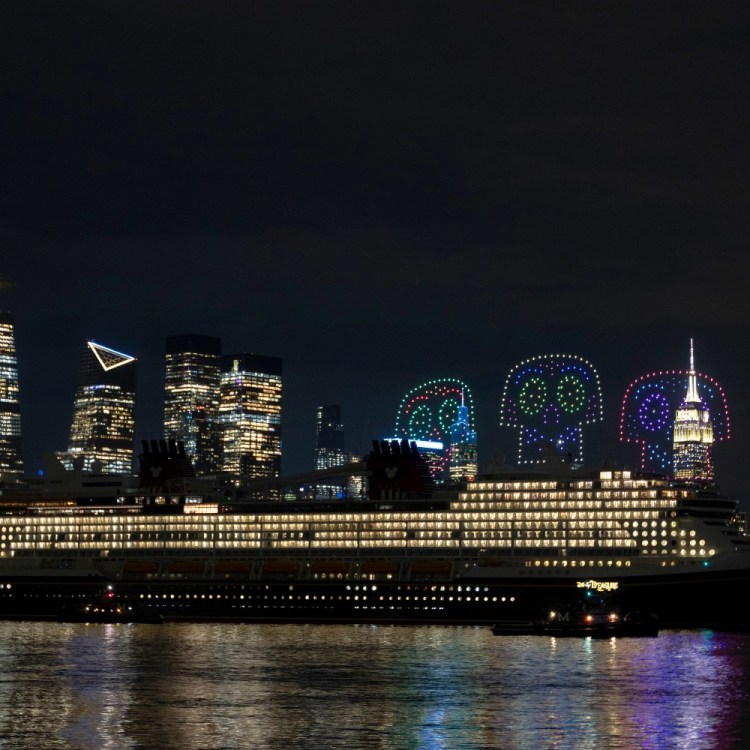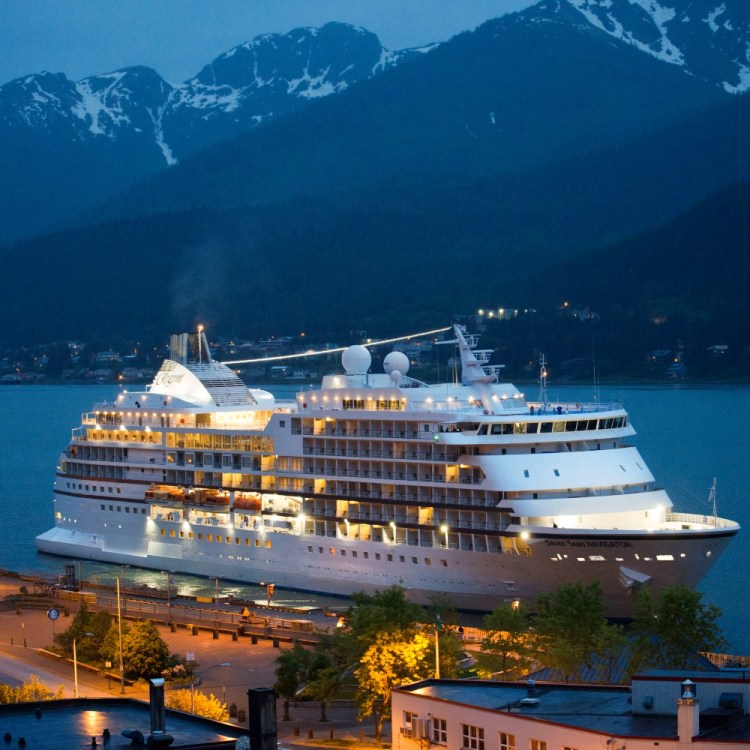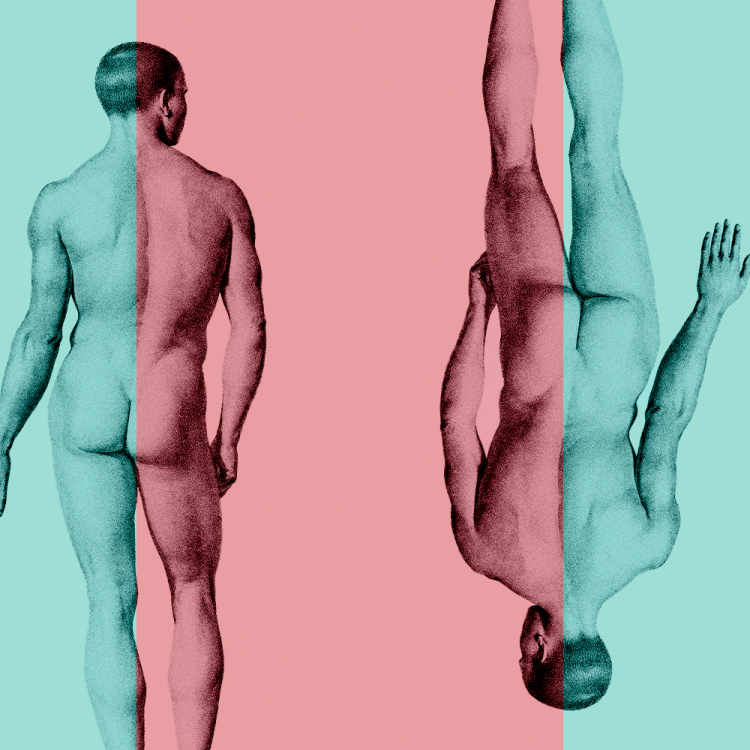Who could have ever predicted that, by the year 2023, the Middle East would be more of a queer-friendly refuge than the United States? But with trans rights under siege, the Supreme Court setting back civil rights several decades and homophobic rhetoric at an all-time fever pitch, the “land of the free” isn’t setting a very high bar these days for those in marginalized communities. While queer travelers can find sanctuary in well-trod locales like London, Madrid and Amsterdam, Tel Aviv has emerged as an unexpected mecca that’s as vibrant and fun as it is safe and inclusive.
As the most metropolitan city in Israel and the country’s economic epicenter, Tel Aviv has long been a hot spot for hummus and fun in the Mediterranean sun, but it’s also evolved into the unofficial gay capital of the Middle East — an endearingly stark contrast to centuries of preconceived notions and homophobic stereotypes entrenched in Israeli lore. While much of the Middle East is still decidedly not gay-friendly, and in certain places downright hostile and dangerous for queer people, Tel Aviv has become so loud and proud that it feels more like Miami or San Francisco.
With LGBTQIA+ rights threatened in the United States, where drag queens literally fear for their lives, Tel Aviv has become a surprising oasis — where rainbow flags are a year-round symbol of inclusion and not a commercialized cash-grab; where a cultural melting pot unites ethnicities and age groups from all over the world; and where the Pride festival is among the most joyous and robust celebrations on Earth.
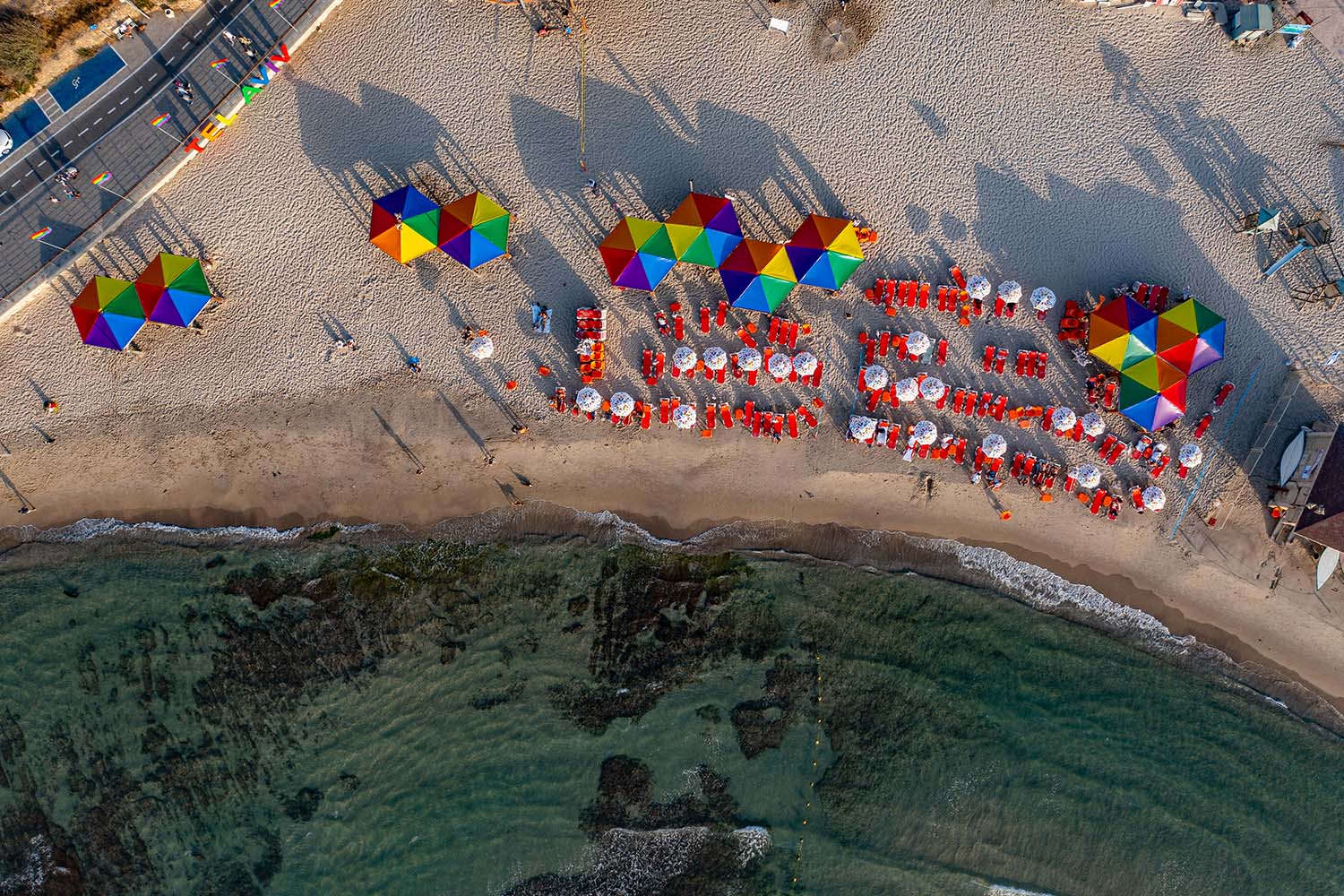
Becoming a Queer Sanctuary
In a region that’s still sadly typified by homophobic hostility and religious fanaticism, it may come as a surprise that Israel’s largest city — against seemingly all social and political odds — has evolved into not only the most LGBTQIA-friendly city in the Middle East, but one of the most accepting and open cities in the world. Basically, it’s the San Francisco of the Mediterranean, teeming with queer-friendly businesses and aglow in rainbow everything, from flags and signage to bagels. But how did a Middle Eastern metropolis pave the way for a new era of open-minded inclusion throughout Israel, a country mired in problematic politics for millennia?
For starters, Tel Aviv has youth going for it. Contrary to the presumption that everything in Israel is as old as time immemorial, this city of 432,000 is actually quite young — at the sprightly age of just 113 years, it’s a couple centuries younger than Boston. Far newer than most Middle Eastern and Israeli cities, including nearby Jerusalem, which pre-dates it by about 5,000 years, Tel Aviv first emerged in 1909 as a Jewish suburb of port-side Jaffa (as Tel Aviv grew, the two twin cities eventually merged into Tel Aviv-Yafo in 1950). Without thousands of years of engrained cultural, political and religious doctrine to negotiate, Tel Aviv has been more of a malleable blank slate (at least in recent decades), free to evolve on its own terms. And for many Middle Easterners seeking an open-minded refuge, this meant the young city began populating with more young residents as well.
The first Pride event was a protest in Rabin Square in 1979, which eventually led to the repeal of Israel’s anti-sodomy laws in 1988 and the passing of anti-discrimination laws to protect LGBTQIA+ people in the workplace in 1992. The first parade, which was more like a dead-serious march, was held in 1993, growing incrementally each year and evolving into the full-blown revelry it is today, twinkling with sequined drag queens and championed by the city’s queer-friendly Mayor Ron Huldai.
“The LGBTQ+ community continues to face obstacles, but we have made many significant achievements here in Israel,” Mayor Huldai said in his kickoff speech at the 2022 Pride parade. “Conversion therapy was completely banned, gay men are now able to donate blood and surrogacy for same-sex couples has now been legalized.”
Israeli Pride continued to bloom later in the ‘90s, when trans performer Dana International won the Eurovision Song Contest in 1998, putting queer visibility on a grand scale like never before and rising to Middle Eastern superstardom with the song Diva. Pride events, parades and festivals are now held in places like Beirut, the Israeli city of Raanana and even Jerusalem, where thousands of years of oppressive religious history haven’t made them the easiest places to be open and free. Of course, like the earlier days of Tel Aviv Pride, these Middle Eastern events are still more political — less about parties and celebratory dancing, and more about decriminalizing homosexuality.
How to Spend 7 Perfect Days in Israel
You can take a lifetime exploring the country, which is the size of New Jersey, but our writer found the ideal way to see it in a week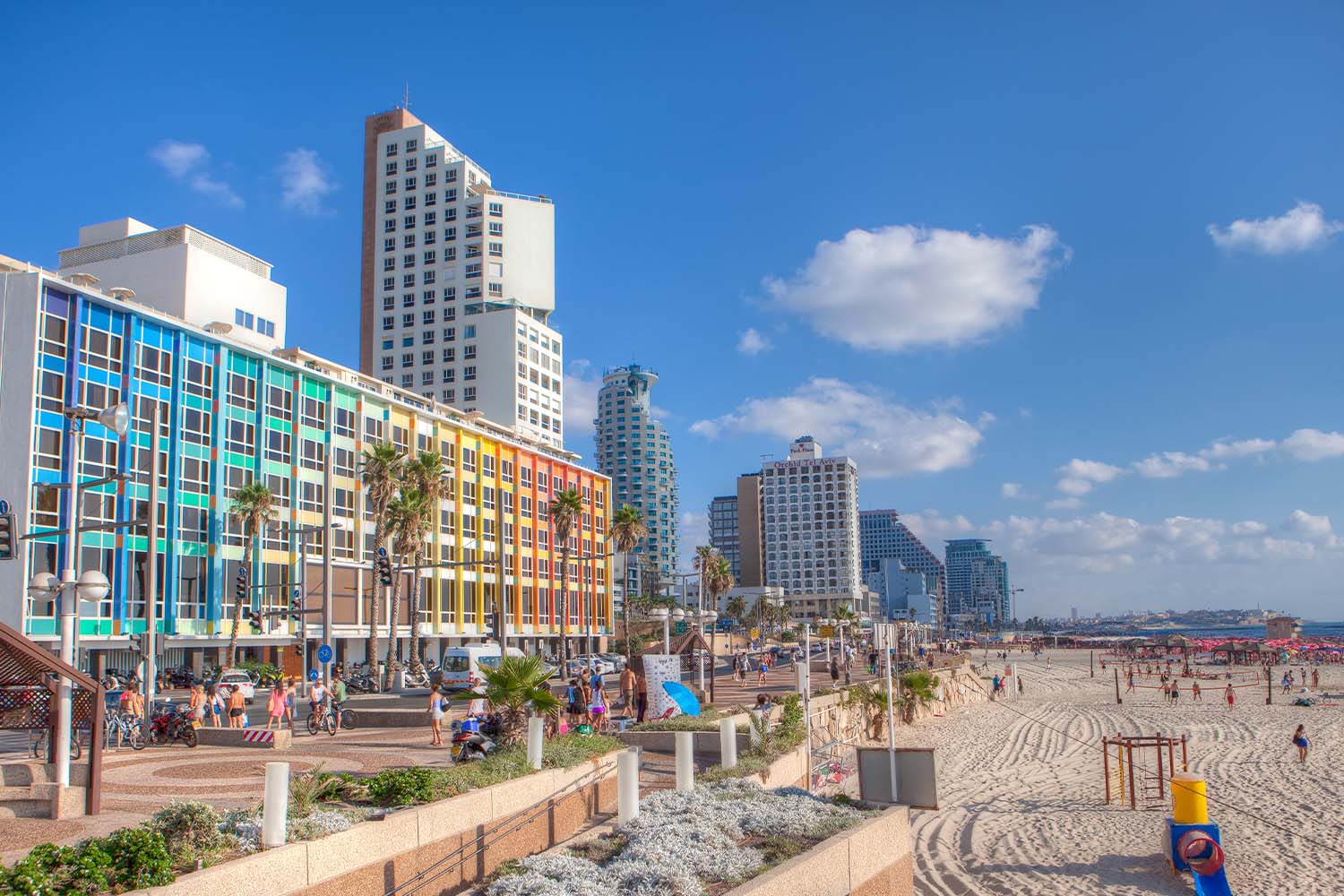
A Rainbow Dot in the Middle East
Nowadays, Tel Aviv is low-key regarded as the gay capital of the Middle East, itself a sentiment that might sound like an oxymoron. Surrounded by countries that are infamously restrictive or outright antagonistic towards the LGBTQIA+ community, Tel Aviv isn’t just a South Beach-esque party city, it’s a beacon of hope.
And that beacon is front-and-center all over town. Rainbow flags, signs and inclusive markers are omnipresent throughout Tel Aviv, from clothing shops and nail salons to bars, hotels, beaches and bakeries, not to mention the illuminated rainbow stripes sprawled across Tel Aviv Municipality throughout June. It’s a display of Pride so widespread and lustrous, it’s enough to make the Castro District in San Francisco look prude.
While much of the Middle East is still in the closet (for good reason), Tel Aviv zigs where the homophobes zag, wearing Pride on its sleeve as vocally as possible. It’s evident at havens like the Brown Brut Hotel, a queer-owned seaside boutique that’s so queer-centric, it describes itself as “straight-friendly” and features an ongoing bazaar in its lobby populated entirely by LGBTQIA-owned vendors, designers and artisans. It’s the kind of city where you can start your day with a rainbow bagel at funky, vegan-friendly Cafe Xoho (because almond-feta spread just hits different on a bright-purple bagel), then shop for hot pink crop tops at Flashback Vintage and lounge at the “gay beach,” easily distinguished by the gigantic rainbow signage in front of the Hilton Tel Aviv. There’s even a rubber duck store, Duck You TLV, that taps into the niche market of inclusive bathtub toys that are clad in everything from Freddy Mercury apparel to leather gear (there’s no kink-shaming at this rubber duck shop).
Come nightfall, the city lights up under the neon glow of wildly popular LGBTQIA+ bars and clubs like Shpagat, multi-story Duplex and Mash Central, an especially inclusive space that combines dancing and drag queens with queer comedy acts. There’s even a gay and bi bathhouse, Sauna Paradise, which is still rare to find even in the United States.
As fun as rainbow bagels and drag shows are, Tel Aviv is also putting in the work to ensure a safe and welcoming community for those who need it most. Beit Dror is the first — and currently only — dedicated shelter for at-risk LGBTQIA+ youth in Israel. The large hostel serves as sanctuary for queer teens in need of a safe space, providing shelter, food and camaraderie, along with on-site therapy and educational resources. After a few months at the shelter, the non-profit (which is funded primarily by the ministry of labor, welfare and social services) works to re-integrate teens back into safe family environments through its Family Intervention Project, or find them secure housing elsewhere. The organization has been doing important work since 2002, and a second Tel Aviv location is in the works.
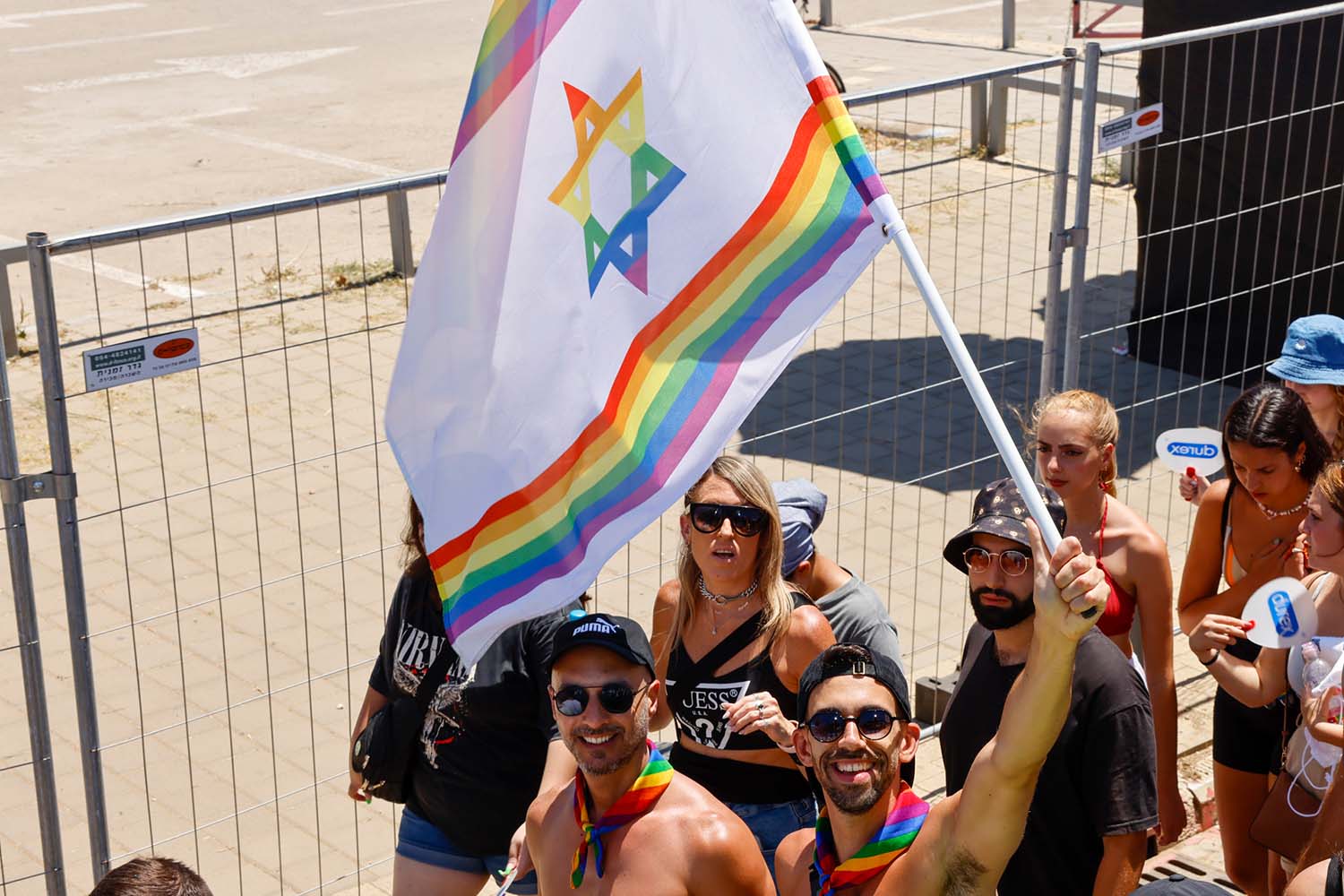
Pride Is Bigger and Brighter Than Ever
In terms of global icons for Pride, cities like New York, Berlin, São Paolo and Madrid typically take top billing. And while Tel Aviv’s attendance numbers are still a far cry from your typical queer romp through Manhattan, Pride has grown dramatically to become one of the world’s foremost destinations for inclusive revelry. Celebrations held in June include an epic, float-filled parade from Sportech Center that moves along Rokach Boulevard to Ganey Yehoshua Park. Previous years’ Pride parades were held by the beaches, but the new route provides more room to accommodate the swell of attendees.
Pre-pandemic, summers in Tel Aviv saw people of every color, gender and ethnicity hit the streets for an epic celebration of love and acceptance, and after two years of socially distant hibernation, the 2022 festivities were a momentous return to uniting queer residents, travelers and allies from the world over. With the theme “Back to Pride,” more than 170,000 people attended the pageantry, kicked off by Mayor Huldai’s starting signal and followed by a spree of lavish, music-filled floats — including, for the first time ever, a float from Tel Aviv Global and Tourism, complete with unicorns. Like a gay Macy’s Thanksgiving Day Parade, but with drag queens instead of giant turkeys balloons, the parade strode down Rokach Boulevard, with dancers twerking to thumping lyrics like “I don’t need no man,” disco balls shimmering in the sunlight and signs demanding trans rights.
Culminating in Ganey Yehoshua Park, the parade dispersed into a massive festival with various stages, booze tents and mosh pit-like crowds dancing to Say My Name remixes and Whitney Houston anthems. Along with DJs, performances from the likes of Dana International, Eurovision star Michael Ben David and Iggy Azalea kept the merry melee at a fever pitch into the evening, with the sleek Tel Aviv skyline glistening in the background.
“Seeing tens of thousands of people from all walks of life celebrate and march together in Tel Aviv, joined by thousands of tourists, is the ultimate ode to the communities we deeply cherish,” Sharon Landes-Fischer, CEO of Tel Aviv Global, said in the afterglow of the successful return to Pride. “Bringing together such an international crowd and, as a natural extension of that, global tech and LGBTQ+ communities, is something the city is extremely proud to facilitate and excel at — today and every day.”
Of course, Tel Aviv is far from perfect. The city, and the country it anchors, is still rife with turmoil, political strife and social struggles. Bombings and shootings are recurring tragedies (which explain the intensely rigorous travel screenings when flying in and out of Israel), and the country’s contentious relationship with Palestine remains a hot-button issue on a global level. But the path to progress has never been a smooth rainbow road, and civil rights are advancing, albeit slowly. While same-sex couples still can’t get married in Israel, the country is the only one in the Middle East to recognize same-sex marriages performed in other countries. With all this slow-but-steady progress, what Tel Aviv represents to the LGBTQIA+ community (including gay Palestinians seeking their own social solace) is a monumental social stride on a global scale.
“2022 has seen tremendous support for the LGBTQ+ community,” Mayor Huldai said. “To all the haters and naysayers, we will continue to respond with pride. Tel Aviv-Yafo has always been, and will always be, a welcoming home to all trans people, lesbians, gay men, queer people and non-binary folks. Here they will always matter, here they are always welcome.”
It’s a sentiment of hope that’s more important now than ever. As a country as seemingly progressive and advanced as the United States reckons with its own entrenched homophobia, Tel Aviv shows the world that, even against all odds and in places you’d least expect, love wins.
This article was featured in the InsideHook newsletter. Sign up now.
